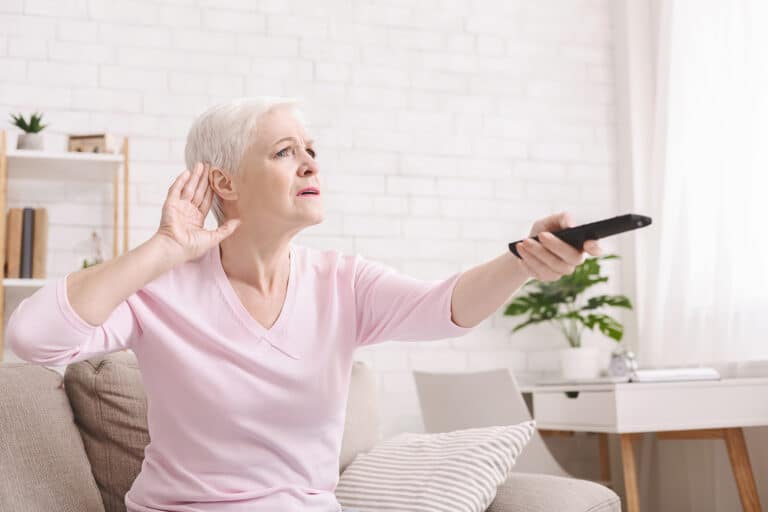Whether through a sudden hearing loss or a gradual hearing loss that has now rendered your loved one hearing-impaired, you may begin to wonder if it’s safe for your loved one to continue to live in her own home alone. For your loved one who has already lost so much with losing her hearing, staying in her home can provide some comfort of being in a space that is intimately familiar. It also enables her to her maintain the self-esteem that comes from living independently, and disabled adult care can help.
Four Important Safety Devices to Update in the Home
To protect your loved one from immediate threats in her household, there are four warning systems you should help her install in her home.
Updated Smoke Detectors
The standard smoke detector indicates smoke in the house with an audible alarm. It also indicates when it needs a battery by chirping. Install new smoke detectors that use strobing lights to indicate immediate attention. There are also bed and pillow vibrating alarms that can be used to help wake your loved one should a fire take place at night.
Updated Carbon Monoxide Detectors
Like smoke detectors, the standard alerting device on these is a sound. Install new ones (on each floor) that have strobe lights.
Security System/Doorbells
Your loved one needs to know when someone is trying to enter her home, whether they are friend or foe. Installing doorbells that have strobe lights will help, as well as linking them to a smartphone so your loved one gets an immediate alert when someone is at the door. Security systems should still emit a loud sound to scare away intruders but also a strobing light to alert your loved one.
Weather Emergencies
Many states have loud sirens that alert the community when an emergency weather situation occurs such as a tornado or hurricane. Find a weather radio that’s compatible with an attention-getting device for your loved one. You can also have her sign up for weather alerts on her smartphone that will vibrate her phone when action is needed.
Disabled Adult Care Services Can Help Your Plan Ahead
If being a part of the hearing-impaired world is new to you and your loved one, you may not have considered the different obstacles your loved one may encounter as she strives to continue to live in her home as a hearing-impaired individual. Having an expert in disabled adult care come to the home and help her review her home for possible areas that might need accommodations is a great step toward creating a safe and enjoyable environment.
Some areas the disabled adult care provider may review and make suggestions for could include:
- Kitchen appliances. From microwaves to stoves to even toasters, a disabled adult care provider can help your loved one relearn how to manage her appliances safely when she can’t hear them.
- Living areas. Watching television, playing video games, and surfing the internet on a laptop will also be different now as well. All devices have assistive programs that can help your loved one still navigate these items and enjoy what they have to offer as far as connection and entertainment are concerned.
- Pets. Animals often communicate only with sounds. Your loved one might need help retraining her pet to use non-verbal signals.
If you or an aging loved one are considering Disabled Adult Care in Alexandria, VA, please contact the caring staff at Access Home Care Inc today! Call (703) 765-9350
Access Home Care provider in Arlington, Alexandria, Leesburg, Reston, Herndon, Manassas, Ashburn, Falls Church, McLean, Lorton, Springfield, Woodbridge, Fairfax, Virginia and the surrounding communities.
“My desire to enter into nursing started when one of my older sisters died of kidney disease due to lack of care. At age 15, I decided to enter into nursing so that I could provide quality care to patients.Upon arrival in United States at 21 years of age, I enrolled in T.C Willliams School of Practical Nursing while working as a nursing assistant at a nursing home. I also worked as a part-time home health aide to take of the elderly. After completion of my practical nurse education, I worked in geriatric psychiatry unit at Dominion Hospital and Arlington Correctional facility mental health unit.
I completed Marymount University in 2001 and entered into Home Care as a field case manager.
I held that position for 2 years and as an Administrator, and for another 2 years until Access Home Care was found in 2004."
Today, Access Home Care has over 300 employees and 286 clients.
- Personal Care at Home Helps Seniors Stuck at Home Connect With Others - April 17, 2025
- Five Tips for Living with Chronic Lower Back Pain - April 3, 2025
- How 24-Hour Home Care Is Different From Other Types Of Care - March 19, 2025



